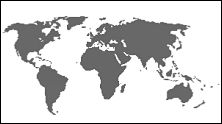
The federal government has taken another key step toward the full adoption of a global information-sharing agreement that targets international tax evasion.
On Tuesday, Canada signed the international Multilateral Competent Authority Agreement (MCAA), which brings this country closer toward the implementation of the common reporting standard (CRS) for the automatic exchange of financial information with other tax jurisdictions. Canada is one of more than 90 tax jurisdictions that have committed to implementing the CRS, developed by the Organization for Economic Co-operation and Development.
By signing the MCAA, Canada will be able to exchange information with other jurisdictions “efficiently and securely,” the federal government says.
“This information will improve the Canada Revenue Agency’s (CRA) ability to detect and address cases of tax evasion and to protect the integrity of Canada’s tax system,” according to an announcement released by the Ministry of National Revenue and the CRA.
Some 60 countries have signed the MCAA to date, including Germany, France, and the U.K. Also signing the MCAA at the same time as Canada were Australia, Costa Rica, India, Indonesia and New Zealand.
Canada’s government committed to the adoption of the CRS by July 2017 and for the first exchange of financial account information starting in 2018 as part its federal budget announcement in April.
Those effective implementation dates will provide Canada’s financial services sector time to prepare for CRS, particularly as it continues to adapt to the requirements of the U.S. Foreign Account Tax Compliance Act (FATCA), which was implemented last year, says Andrea Taylor, managing director with the Toronto-based Investment Industry Association of Canada (IIAC).
“The IIAC definitely appreciates the Canadian government’s reasonable approach with respect to the timing of implementation, given the complexities of moving from a FATCA bilateral exchange of information to a more complex multilateral information exchange,” Taylor says.